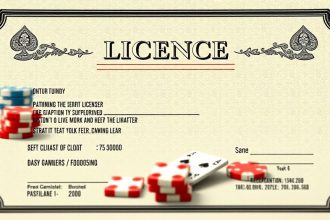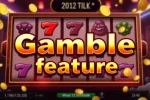The metaverse, a shared virtual universe blending augmented and virtual realities, is reshaping online casinos. By 2025, metaverse gambling platforms like Decentraland and The Sandbox have become hubs for immersive casino experiences, where players don avatars, roam digital casino floors, and wager with cryptocurrencies or NFTs. With a projected market size of $150 billion by 2030, metaverse casinos are redefining entertainment, merging social interaction, gaming, and blockchain technology.
What Are Metaverse Casino Games?
Metaverse casinos operate in 3D virtual worlds accessible via VR headsets (e.g., Meta Quest 3), AR glasses, or standard devices. Players enter sprawling environments—think neon-lit Vegas strips or futuristic space stations—where they interact with games, dealers, and other players in real-time. Blockchain ensures transparency, with smart contracts powering bets and payouts, often in tokens like ETH or MANA.
Unlike traditional online casinos, metaverse platforms emphasize:
- Immersive Environments: Walk through virtual lobbies, sit at poker tables, or spin slots in a sci-fi lounge.
- Social Dynamics: Chat, trade virtual items, or attend live events like DJ sets or tournaments.
- Ownership: Purchase virtual land or casino assets as NFTs, earning passive income from hosted games.
In 2024, Decentraland reported 10,000 daily active users in its casino districts, a 60% jump from 2023.
Top Metaverse Casino Games
The game roster blends classics with innovative formats tailored for virtual worlds:
- Virtual Poker: Platforms like PokerVR host Texas Hold’em in avatar-filled rooms. Use voice chat or gestures to bluff, with NFT card skins as collectibles.
- Metaverse Slots: Games like Crypto Space Commander integrate slots with space exploration. Wins yield tradeable tokens or rare digital items.
- Roulette and Blackjack: Live-streamed dealers in The Sandbox’s casinos deal cards on interactive tables, with side bets and leaderboards.
- Blockchain Dice: High-stakes, provably fair dice games, popular in crypto hubs like Somnium Space, offer multipliers up to 100x.
- Game Shows: Virtual versions of Wheel of Fortune or Deal or No Deal, hosted in metaverse arenas with live audiences.
These games leverage Web3 tech, letting players verify fairness via blockchain explorers.
Leading Platforms and Providers
Decentraland’s Vegas City district is a pioneer, hosting casinos powered by Atari and Kraken, with slots, poker, and exclusive NFT drops. The Sandbox partners with brands like SoftSwiss to offer branded virtual tables. Vave and BC.Game integrate metaverse lobbies with crypto wallets, supporting instant Bitcoin or USDT bets.
Key providers:
- Evolution Gaming: Streams live VR/AR dealers into metaverse spaces.
- Spribe: Adapts crash games like Aviator for metaverse play, with avatar-driven betting.
- Enjin: Powers NFT-based casino assets, from slot skins to virtual real estate.
Free-to-play modes are common, with real-money options requiring wallet connections.
Challenges and Responsible Gambling
Metaverse casinos face hurdles: high entry costs (VR gear or NFTs), complex wallet setups, and regulatory gaps in decentralized spaces. Jurisdictions like Malta are adapting, but unlicensed platforms pose risks. Addiction is a concern due to the immersive nature—platforms now offer timers and spending caps.
Tips for safe play: Use reputable sites, verify blockchain fairness, and set strict budgets. Avoid chasing NFT “investments” tied to volatile markets.
The Future of Metaverse Gambling
By 2035, expect AI-driven dealers with personalized banter, cross-metaverse interoperability (play in Decentraland, cash out in The Sandbox), and AR overlays blending real-world objects into virtual casinos. Blockchain adoption will deepen, with 80% of bets predicted to use crypto by 2030.
Metaverse casinos offer a thrilling leap beyond traditional platforms. Create an avatar, explore a virtual Vegas, and bet wisely—your next spin could land you digital gold or a rare NFT. Always choose licensed operators and gamble responsibly.








